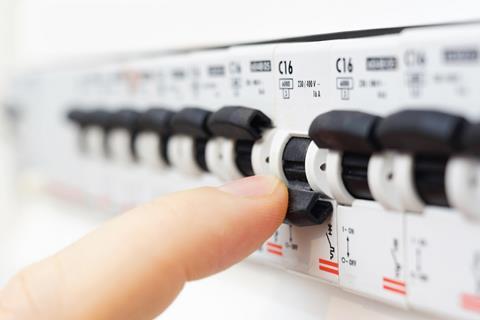London borough starts “major programme” to carry out testing
Southwark Council has made a self-referral to the Regulator of Social Housing after finding it has not carried out electrical safety tests on all its properties.

The south London local authority, which manages 36,000 homes, believes it may have breached regulatory requirements. On Tuesday it announced it has self-referred over a failure to implement a new requirement for electrical testing “in the way it should have been”.
Kieron Williams, leader of Southwark Council, said: “We take residents’ safety extremely seriously and are determined to keep raising the quality of our council homes.
“While we have made real progress – improving our repairs service, tackling damp and making our homes safer from fire – we also have work to do. This includes completing these important electrical tests. I apologise for this delay. “
The council has now begun a “major programme” to carry out the tests, which are known as Electrical Installation Condition Reports (EICR).
The new RSH Safety and Quality standard requires providers to “take all reasonable steps to ensure the health and safety of tenants in their homes and associated communal areas.”
The Social Housing (Regulation) Act 2023, which became law last year, made a provision for new standards requiring social housing providers to carry out electrical safety checks.
>>See also: Evolution or revolution? What new consumer standards mean for RPs
The government has proposed mandatory inspections and tests on electrical installations for all social housing at least once every five years and a legal requirement to obtain an EICR, but this regulation has yet to be brought in.
The code of practice for the management of electrotechnical care in social housing recommends an “electrical installation in a domestic tenanted property is inspected and tested at least once every five years, resulting in the creation of an EICR”. The code was drawn up by the Electrical Safety Roundtable, which consists of dozens of organisations including around 30 social landlords, and is co-ordinated by National Association of Professional Inspectors and Testers (NAPIT).










No comments yet